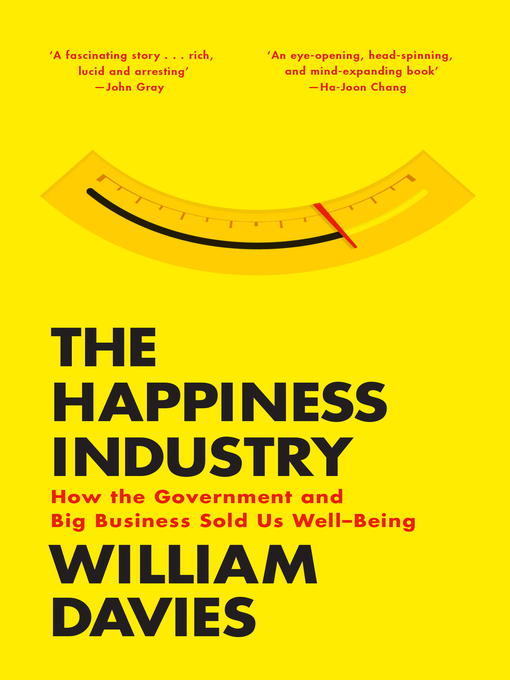
The Happiness Industry
How the Government and Big Business Sold us Well-Being
کتاب های مرتبط
- اطلاعات
- نقد و بررسی
- دیدگاه کاربران
نقد و بررسی

March 1, 2015
Durable reportage on governmental and commercial attempts to influence and propagate national well-being.British sociologist and political economist Davies (The Limits of Neoliberalism: Authority, Sovereignty and the Logic of Competition, 2014) scrutinizes an increasingly desirous yet elusive commodity: human happiness. He asserts that proof of well-being lies in scientifically measured studies with verifiable data, not with advertisers and pharmaceutical companies "watching, incentivizing, prodding, optimizing and pre-empting us psychologically." The author profiles 18th-century philosopher Jeremy Bentham and discusses how his doctrine of utilitarianism might also be applied to modern theories of individual happiness. Davies believes a race has begun to discover and ultimately develop what motivates human psychology in order to apply methods of achieving contentment across a broad spectrum of societies. Spurred on by capitalism and strategically manipulated technology, influential corporate tastemakers have long sought to tap into (and capitalize on) the secrets of personal happiness by way of behavioral economics, advertising, and the often ethically dicey involuntary monitoring and calibration of human satisfaction. A section on how happiness quotients are actually measured-whether through a smile, a pulse rate, or a particularly impulsive purchase-makes for contemplative reading. Through neuroscientific research studies addressing everything from workplace satisfaction to the depression epidemic, Davies shares a wealth of relevant information that points to the vast marketing potential of commercializing the concept and achievement of universal human bliss and the "limitless pursuit of self-optimization." Also significant is whether personal contentment can be bought, sold, managed, and manipulated via the global economic marketplace. If it hasn't happened already, Davies writes, governmental and corporate entities are hard at work converting the concept of happiness into a "measurable, visible, improvable entity." Skillfully written intellectual entertainment-prime fodder for postmodern psychologists and New-Age thinkers alike.

March 1, 2015
Davies, sociologist and political economist, reports on the Happiness Industry (which measures the way people feel). Neuroscientists claim to have found the precise parts of the brain in which positive and negative emotions are generated. As the statistical evidence in this area accumulates, so the field of happiness economics grows to take advantage of it, and this leads to identifying regions, lifestyles, forms of employment, or types of consumption that generate the greatest mental well-being. The author indicates users of this information include government, medicine, marketing, and managers, quoting Gallup, which estimated unhappiness in employees (for 2013) cost the U.S. economy $500 billion in lost productivity, lost tax receipts, and health-care costs. Davies, explaining the evolution of the science of happiness from the French Revolution to the present, argues it essentially serves the interests of the powerful elite. He suggests turning a skeptical eye upon the history of happiness measurement itself. This challenging book will appeal to academics and students of various disciplines.(Reprinted with permission of Booklist, copyright 2015, American Library Association.)

























دیدگاه کاربران